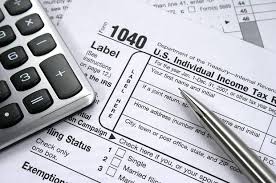Monthly Archives: March 2018
 08
08Mar
Lower Tax Liability May Result in Higher Car Insurance Premiums
At the end of 2017, the President signed a massive tax reform bill, formally known as the Tax Cuts and Jobs Act. The new law is more than 500 pages long and for the most part, will not affect the 2017 taxes you should file by April 15, 2018. Although there are varying opinions on how the law will affect the average taxpayer, there is a general consensus that the new tax bill will result in an increase of car insurance premiums.
The new tax bill not only modified the United States Tax Code, it also modified the Affordable Care Act, officially known as the Patient Protection and Affordable Care Act. The new law reformed the Affordable Care Act by repealing the individual mandate that requires most Americans to have health insurance. Without the mandate, it is predicted that the pool of uninsured Americans will increase significantly.
The rate of Americans without health insurance is thought to directly correlate with car insurance premiums. As the number of Americans without insurance increase, so does the average car insurance premium.
The reason is two-fold. First, according to the Insurance Information Institute, car insurance companies, on average, pay four times the amount on bodily injury related damages than they do for property damage. Second, if the car insurance companies are going to start having to pay for injury related claims to a greater number of medically uninsured individuals, the cost for the claims wi ll increase. As the cost of the average claim increases, so too will the average price for car insurance.
Like much of the new tax law, the effects of repealing the individual mandate is yet to be seen. However, unlike much of the tax code that treats taxpayers differently based on income, an increase in car insurance premiums will affect all who purchase car insurance (hopefully everyone) across the board equally.